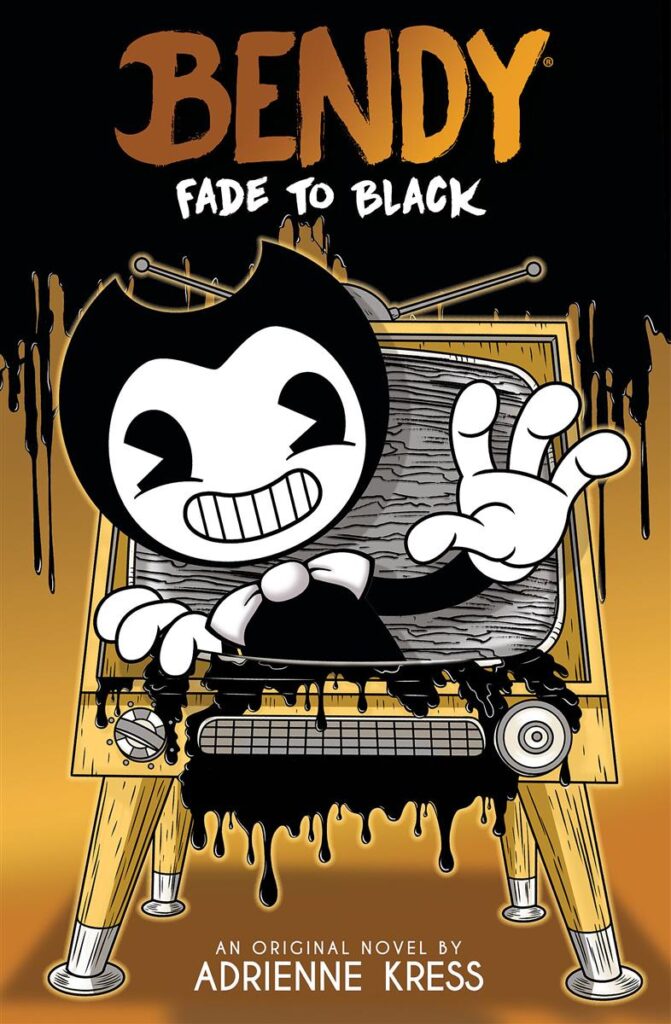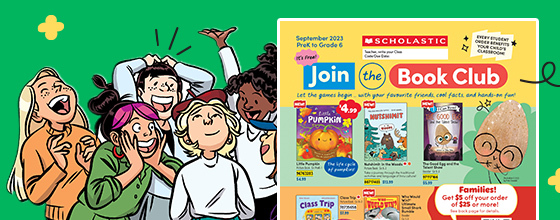
What inspired you to write your book? Where did the idea for your book come from?
The book is based on the Bendy and the Ink Machine horror video games. It is not a retelling of the game itself. Instead, it is a story set in the universe of the game and takes place in 1950s New York City after the character Joey Drew shut down his animation studio and decided to give television a try.
The idea for this book obviously takes inspiration from the games, but the horror elements were very much inspired by what was happening in the 1950s. With Joey Drew working at a television studio, obviously TVs would be front and centre in this story. Adding to that, both television and 3D movie glasses were the hot new things in 1953, and I thought combining them would be fun. From there I thought of how to make a TV scary, and I looked to all the classic horror films that had TVs in them: Poltergeist, The Ring, etc. I wanted to pay homage to those works while still making the book my own, and, of course, making it all very Bendy.
What did you enjoy most about writing? What were some challenges that you faced while writing?
I always love creating new characters, I think characters are my favourite part of every book I write. With Bendy: Fade to Black a huge challenge came in the form of my lead character Rose. She is the first truly optimistic, positive character I have written into a horror book. And let me tell you, it’s pretty tough to tell a horror story when your character is just so happy all the time. To find the balance – the balance between her excitement and seeing the good in everyone she meets on the one hand, and her realizing that things aren’t what they seem and that she needs to be careful on the other hand – was quite difficult. I didn’t want it to feel forced. I wanted her realization of the horrors going on around her to be gradual and nuanced. That definitely took some work.
What do you hope your readers will take away from your book?
I hope readers will first of all have a really great time with the story and enjoy hanging out with the characters and find the plot a page turner. To entertain with books, to show that books can be fun and thrilling, is a huge goal of mine. I do also hope readers feel things: joy when things go right for our main character, fear when things are scary, sadness when moments of sorrow happen. Emotions are so important, and having a safe outlet to feel and explore them, like reading a book, matters a lot. Bendy: Fade to Black also touches on what it can be like to live with PTSD and to deal with mental health issues in general, and so I also hope my readers learn that mental health is just as important as physical health. And just because you can’t see an injury, that it doesn’t mean it doesn’t exist. I hope they take away that you can do the right thing even if the choice is hard. And that it’s important we take care of the people we love.
What books have had the biggest impact on your life? What books were your favourite to read growing up?
There are so many! I absolutely devoured Judy Blume and Beverly Cleary books growing up. I was obsessed with them. I also really loved adventure books and mysteries (I adored Encyclopedia Brown and getting to try to solve the cases with him). I would say, though, The Hitchhiker’s Guide to the Galaxy by Douglas Adams really shaped how I write books today. It was the first time as a young reader I realized that you could do really weird stuff in storytelling and that you could be so absurd and play with the form of a book. Also, to me, it’s still one of the funniest books out there. It really made me want to make sure there was funny stuff in all my books. Even the more serious ones.
What’s your writing process look like?
Generally I like to have a sense of where I’m going. So I like to have a very basic plot outline. But my favourite thing about writing is the discovering while writing – learning about the characters, creating dialogue that takes me in a direction I wasn’t expecting, etc. So that’s why I can’t plot out everything beat by beat like some authors do. Filling in the gaps is my favourite part.
As for how my day to day routine looks, I’m not married to a particular schedule. My days can look very different from each other. What I often do is give myself a wordcount I need to hit for the day. Whether that happens first thing in the morning, sometime in the afternoon, or late at night . . . that’s unpredictable.
What’s next for you?
I’m working on a few really cool projects that, unfortunately, I can’t talk about just yet. One of them is totally different from any other kind of book I’ve done before, and I’m really excited to take on the challenge!
I also have a middle grade horror-lite graphic novel called Ghost Circus coming out 2025. It’s illustrated by the incredible Jade Zhang.
What piece of advice would you share with young readers?
There is a book out there for everyone! Since I was a reluctant reader myself, I understand the struggle to find something to read that holds your attention. But there IS something out there for everyone. Not every book is meant for every reader, but every reader can find that book that means something to them! Don’t give up trying to find that book! You WILL find it. (It might be a graphic novel, it might be in a genre you didn’t expect, but it’s out there!)
Why do you think reading is so important?
Reading just hits your brain differently than watching TV/Movies or playing video games. All of these media are amazing at telling stories, and I enjoy them all myself, but reading just sets sparks off in the imagination in a way that other media just don’t. When you find the right book, when you just can’t put it down, and you see all the images inside your head, it’s just the most amazing feeling.
I also think reading opens you up to other points of view in a unique way. We get to be really inside the mind of someone else and that’s very cool.
What’s more, reading is “accidental learning”, I like to say. Yes, you learn a lot about other places and people and subjects, but you also learn about words and story structure and things that might sound kind of dry. But you don’t have to work at learning those things, because by reading you are already growing to understand them. I love words, I love being able to be precise with them and communicate exactly what I’m thinking no matter how complicated. The more words you learn, the more sentences you read, the more books, poems, plays and interesting ways to use words you consume, the more you learn how to express your own inner world. And that’s a kind of magic, I think.
 Book Clubs
Book Clubs
Scholastic Book Clubs helps kids discover the joy of reading. Together, we put can’t-miss books into kids’ hands—at can’t-miss prices, while also giving back to a teacher's classroom!
Visit us online Book Fairs
Book Fairs
Bookjoy or bust! Millions of children have discovered books—and a lifelong love of reading—at a Scholastic Book Fair.
Visit our site